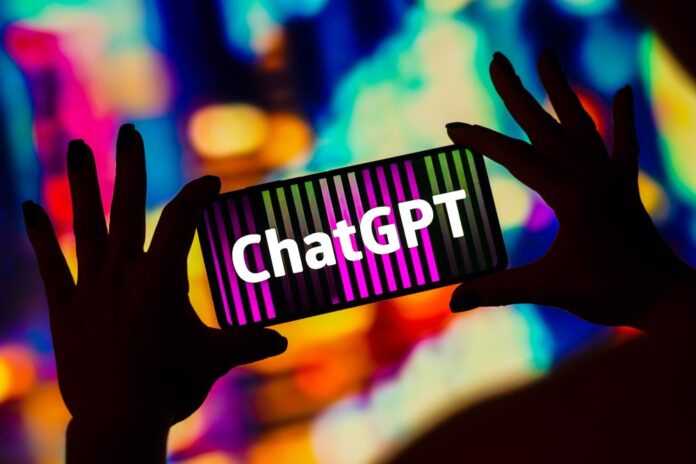ChatGPT has grown faster than TikTok: how can the AI-enabled platform benefit telecoms operators?
The growth of the AI-enabled chatbot ChatGPT has been so rapid, it has surpassed even TikTok’s record rise, taking just two months to reach 100 million users. The popularity of OpenAI’s platform is attributed to its simplicity, as well as its ability to boost efficiency in multiple industries – including telecoms.
So how can ChatGPT benefit telecoms firms, is the hype warranted and what challenges need to be overcome to get the most out of the tech’s industry’s latest trend?
Launched in November 2022, ChatGPT’s skills go beyond the average chatbot. The platform is apparently able to write and debug computer programs, compose music, fairy tales and student essays, as well as write poetry and song lyrics.
Customer service
First and foremost, ChatGPT’s chatbot capabilities offer a potential boost for customer service. “Telecoms companies can provide instant and accurate responses to customer inquiries, reducing wait times and improving satisfaction,” says Noam Fine, Head of Vonage AI.
ChatGPT can help to automate routine and repetitive tasks, freeing up customer service agents to focus on more complex queries. The technology can also provide valuable insights into customer behaviour and preferences, allowing telecom companies to better understand users and tailor offerings to meet their needs, says Fine.
Integrating ChatGPT into organisation-wide processes can lead to increased efficiency, cost savings, and improved customer satisfaction, agrees Kelvin Chaffer, CEO of Lifecycle Software. “Super-chatbots such as ChatGPT have the potential to be integrated into existing customer service chatbots that can supply immediate, in-depth answers, in addition to providing a conversational aspect,” he says.
Game changer
Taking its multiple capabilities into account, ChatGPT could be a “game changer” across service, maintenance and many other functions, says Matthew Bloxham, senior telecom, media and technology analyst at Bloomberg Intelligence. “The technology may even have a role to play in proactive customer outreach for renewal or retention offers,” he adds.
ChatGPT and similar models could also drive software development in telecoms: With the right prompts, it can write coding for teams. In addition, the technology could play an imperative role in fraud detection, Chaffer says. “Teams can train ChatGPT to identify and flag potential fraud cases in real-time, which could be a massive aid in reducing financial losses for telecoms companies.”
Network monitoring is another possible use for ChatGPT, says Cyrille Joffre, Chief Operating Officer at Sure: “It could be used to interpret and analyse large amounts of data to improve network monitoring, helping to detect and diagnose issues more quickly.”
Meanwhile, ChatGPT could help analyse and interpret data to improve network planning and optimisation, by identifying potential issues and suggesting solutions, Joffre adds.
ChatGPT challenges and risks
The potential is vast, but there are risks and challenges to take into account when considering the up and coming technology. Right now, businesses should be wary of organisations claiming that ChatGPT can be implemented to solve customer interaction or company specific content problems, says James O’Hare, MD at LINKMobility. “Currently models are static, meaning the data is out of date quickly or in some cases, not included in the model.”
One of the biggest issues with ChatGPT is its tendency to perpetuate biases and harmful stereotypes that are present in the data it was trained on, Joffre says. “This is because language models like GPT-3 are trained on large amounts of text data from the internet, which often contains biased and stereotypical language. This can lead to biased and stereotypical text.”
At the same time, it’s important to consider ChatGPT’s security weaknesses, says Chaffer. “As these bots are highly skilled in imitating human conversations, it opens the doors for hackers to utilise and repurpose the bots for customer impersonation, data theft, ransomware and a host of other security concerns.”
Another issue is the technology’s cost and computational requirements. “Training a model requires massive amounts of computing power and resources, and access is limited to a small number of large organisations and research institutions that have the resources to pay for it,” Joffre explains.
There are also legal risks to consider, says Raymond Sherry, an associate lawyer at Browne Jacobson in Dublin. For example, he says, thereare IP issues in both the input datasets used for the algorithm and the outputs of ChatGPT. “One currently unanswered question is whether the data that the technology was ‘fed’ was licenced, owned or otherwise held under a proper legal entitlement.”
Taking advantage
It’s early days for ChatGPT and while its benefits aren’t entirely based on hype, there are several factors for telecoms firms to consider before jumping on the bandwagon.
It’s a good idea to assess business priorities first, says Christy Kulasingam, Business Strategist and Founder of Radbourne Consulting. “Deploying ChatGPT just because it is popular is not going to ensure its success. The first step should be defining your business priorities and working out exactly what it is about ChatGPT that could add value to your business processes.”
At the same time, operators need to understand and accommodate the security vulnerabilities that can come alongside emerging technology – such as unencrypted communications, data alterations, the existence of HTTP protocol and data handling, Chaffer adds.
Meanwhile, operators must safeguard sensitive customer data such as billing information, account details and call records. “Allowing chatbots unrestricted access to this type of data would increase the risk of a breach and compromise the security of customer information,” says Fine.
More broadly, it is important for individuals and organisations to be proactive in moderating the use of AI and ensuring it is used ethically and responsibly. “This requires a deep understanding of the capabilities and limitations of AI, as well as a commitment to using it in a way that promotes transparency and accountability,” Fine says.



